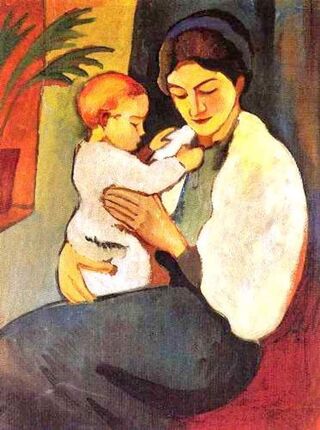Cognition
I Never Had Children, and I’m Fine With That
I have many regrets, but this is not one of them.
Posted September 26, 2021 Reviewed by Kaja Perina
When I was 30 and living a somewhat marginal existence in an East Coast city, I visited my mother one summer weekend. Over dinner on the screened porch of my childhood home, we had a frank mother-daughter chat.
My father had died unexpectedly the previous summer, and my mother was still new to navigating the sorrowful waters of widowhood.
I was a struggling journalist in a questionable relationship that would end in divorce six years later, after just two years of marriage.

Long before my ill-advised marriage, however, my mother was not happy with my life choices. That evening, I worked up the courage to ask her what she wanted of me.
“I want you to get married to someone with a good job, so you won’t have to work so hard,” she said. “And I want you to have a grandchild—for me.”
My mother’s frank revelations startled me. I understood her concern about my working too much, especially because my efforts were not paying off in career success.
But her wish for a grandchild caught me off guard. Thinking quickly, I decided this was not the time to tell her I had no interest in having children, and I could not picture myself ever becoming a mother.
My mother, by contrast, seems to have been keen on children from an early age.
She babysat the neighbors’ children when she was a teenager in Vermont. When she lived in Manhattan in her 20s, she volunteered at The New York Foundling Hospital. She told me years later that taking care of the babies there was a special joy.
At a family funeral in 2015, I met one of the children from my mother’s Vermont neighborhood. By then he was a retired college professor; he said, with great delight, “Your mother was my favorite babysitter!”
Unlike my mother, I babysat only once when I was in high school. The experience convinced me there had to be a better way to earn spending money.
The family who hired me had a boy and girl under 10 and an infant in a crib. The older children were no trouble. They were in their pajamas when I arrived, and they went to sleep willingly when I announced it was bedtime.
But the infant terrified me. I was convinced he would die in his sleep during my stint; I spent the evening periodically creeping into his room and fearfully watching his tiny chest rise and fall.
I was so grateful when the parents came home that I almost refused the payment they gave me. Being relieved of the awful burden of caring for their children seemed payment enough.
In my 20s, I occasionally shared my lack of interest in motherhood with a friend. Inevitably, the soothing response was that I would no doubt change my mind in a few years.
When I would mention I had not met anyone who seemed even remotely suitable as a father for the hypothetical children I didn’t plan to have, the soothing response would be, “Oh, you just haven’t found the right guy yet.”
As I suspected, my friends’ predictions were off the mark. My maternal instincts never kicked in—not in my 20s, my 30s, or my 40s, as I prepared to wave goodbye to my childbearing years.
On rare occasions, I would visit a friend who had just had a baby. When she would offer me her bundle of joy to hold, I would smile nervously while thinking, “How long do I have to do this before I can politely give it back?”
I never shared my aversion to motherhood with my own mother, and she never asked. Luckily for both of us, my brother got married, and he and his wife had two wonderful sons, whom my mother shyly doted on.
My older nephew was 3 when my mother was diagnosed with Parkinson’s disease. Four years later, she moved to a nursing home for 24-hour care. After 30 years of living elsewhere and returning only for periodic visits, I moved back to the area where I had grown up to help care for her.
For the next six years, I saw my mother every week, talked to her by phone between visits, and shared with my brother the task of taking her to doctor’s appointments.
She faced the cruel, relentless progression of Parkinson’s with courage and dignity; I never heard her complain. But she worried about me. She often said she felt guilty that I had given up my job and moved back home to help her.
I assured her I had been happy do so, and I meant it. During those years, we became close in a way we never had been before.
One fall afternoon, as I was helping my mother into a jacket so I could take her for a walk in her wheelchair, she looked up at me.
“Who’s going to do this for you, darling?” she asked, plaintively.
Taken aback, I invented a swift reply to calm her fears.
“Oh, I’ll find someone,” I said, in what I hoped was a lighthearted, cheerful tone.
But we both knew what she meant. I had failed to create a clone of myself—a loving, dutiful daughter who would care for me in my old age.
I was by my mother’s side when she died in 2009. Now I am in my 60s, and I have not yet located a compassionate young person to help me in my last years—which I hope will not arrive any time soon. But I do know that having a child is no guarantee of end-of-life companionship.
I have made countless bad decisions in my life, but never having children is not one of them. Not all of us are cut out to be mothers, no matter what our friends might tell us. I hope young women today who secretly feel the same way will draw strength from my story.
Being a mother requires a set of skills I have always known I do not possess. But there are other ways to be kind, nurturing and determined to leave the world better than we found it. I just might have the skills for that.
Copyright © 2021 by Susan Hooper




